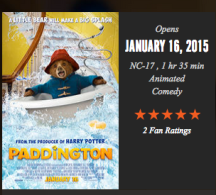
- By Lorie Shaull from Washington, United States via Wikimedia Commons
Now that the election is over, many of us are still grasping at how to respond. I’ve been reading a lot and listening a lot. I admire much about those who have taken to the streets to peacefully demonstrate. I also understand the anger of those who have behaved less peacefully, while I don’t excuse it or think it’s a productive channeling of their anger. Given that Trump supporters were talking about “grabbing muskets” if they lost, I think some smashed windows in Portland rank fairly low on the richter scale of domestic disturbances. That doesn’t excuse it, but let’s hold it in perspective for a moment.
I also understand those who have been too paralyzed by shock and the quotidian responsibilities of day-to-day life to do much of anything other than like posts on Facebook or watch Kate McKinnon’s SNL cold-open repeatedly. For now, I’m more in that last camp. I’m still finding my way of how to be a father, a husband, a citizen and a writer in this new world.
When I saw the hashtag and heard the chant #NotMyPresident my first reaction was, “Fuck yeah!” This guy is not MY President or my idea of what a President should be at all. The rejection provided a release and a venting of anger. But the aftertaste of the words in my mouth left a bitter and intellectually dishonest sensation. The truth is Donald Trump IS our President-elect. And he will take office after winning a democratic-ish election. Yes, he lost the popular vote, but we’ve all agreed to abide by the electoral college for centuries and choosing not to own it when we don’t like the results is a strategic and morally dubious choice.
But even on its surface, the rhetorical distancing of ourselves from OUR President Trump is counter-productive. In some ways it serves the same corrosive effect on our democracy as birtherism: the rejection of the ideology and platform of an office-holder under the guise of the rejection of the office-holder’s legitimacy. We can and must defeat the virus of Trumpism that will soon occupy the White House without further damage to the body of our democracy. We won’t achieve much by declaiming that which is legitimate to be illegitimate. He is very much OUR President, and his success or failure is our responsibility.
That doesn’t mean I’m calling for some kind of honeymoon period to give Trump a chance. I do not believe as President Obama stated, that if President Trump succeeds, the country succeeds. From what I’ve heard from the man himself, Trump’s definition of what will constitute success would be a total disaster for the country and hurl many other countries into crisis. I believe he must be actively resisted from the get-go and we should not lose a second believing that his extreme goals are unachievable. We made that mistake by laughing when he announced he was running for the Republican nomination. We made that mistake again when we laughed after he declared he would accept the results of the election, “when he won.”
In my heart of hearts (yours too?), I didn’t take Trump seriously until the A.P. called Ohio, Florida and North Carolina on November 8. Way too late. And now he is MY President. With a Republican Congress and a Republican Supreme Court, he is well on his way to becoming the autocrat he styled himself to be on the campaign trail. I will not trust Reince Priebus or Paul Ryan or John Roberts to be a brake on his authoritarian instincts, vengeful behavior and disregard for facts.
So now I will take Masha Gessen’s advice and take him at his word:
Rule #1: Believe the autocrat. He means what he says. Whenever you find yourself thinking, or hear others claiming, that he is exaggerating, that is our innate tendency to reach for a rationalization. This will happen often: humans seem to have evolved to practice denial when confronted publicly with the unacceptable.
If he says he plans to deport over 3 million people immediately, you need to believe him. You’ll hear that President Obama deported 2.5 million people, so what’s the big deal? The big deal is that Obama did that over a six year period through the instrument of an imperfect bureaucracy — and it may actually be one of the least well-known stains on his Presidency. With President Trump what safeguards will be brushed aside? How will he define what level of criminality qualifies for immediate deportation? What becomes of those peoples’ dependent children and spouses, both those here with and without documents?
If he says he’s going to roll back protections for trans youth in public schools, believe him. If he says he’s going to allow discrimination against LGBTQ citizens under the guise of religious liberty, believe him. If he says he’s going to investigate his political opponents, believe him. If he says he’s going to effectively declare war on “sanctuary cities” by withholding federal funds, believe him. If he says he’s going to ban Muslims from entering the country under the newspeak process of “extreme vetting,” believe him. If he says he wants to bring back stop-and-frisk, impose curfews on our inner-cities and be a “law and order” President, believe him.
The crisis is now. Not on January 21.
Democracy demands that we respect the result of the election. It does not demand that we acquiesce to policies that threaten the human rights of our neighbors.
President Trump is my President. And he is going to hear from me.











